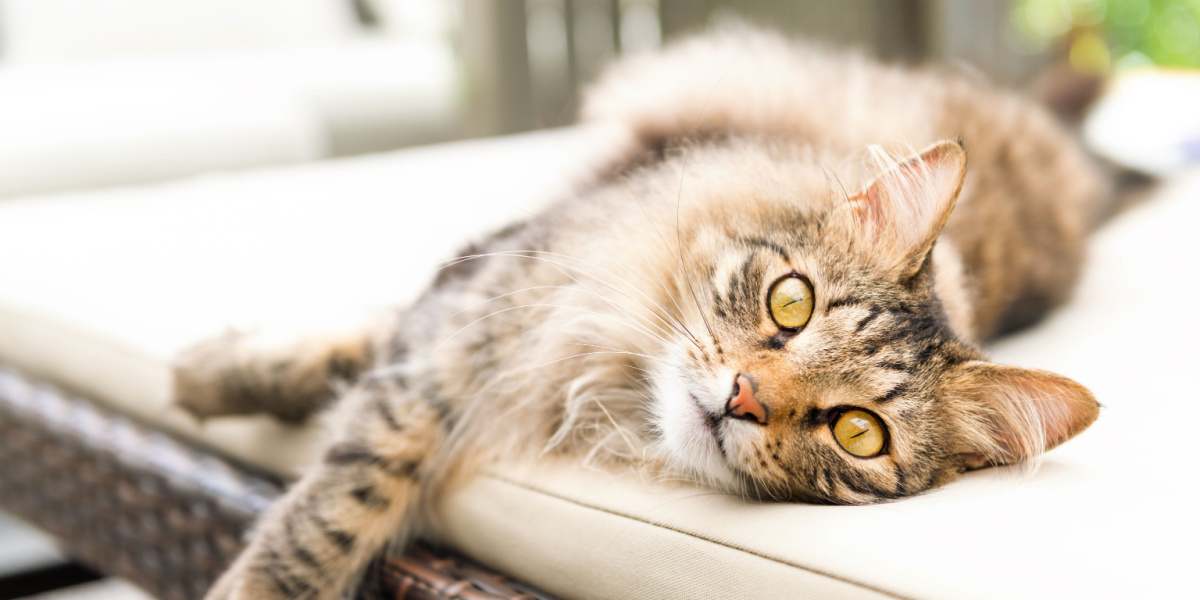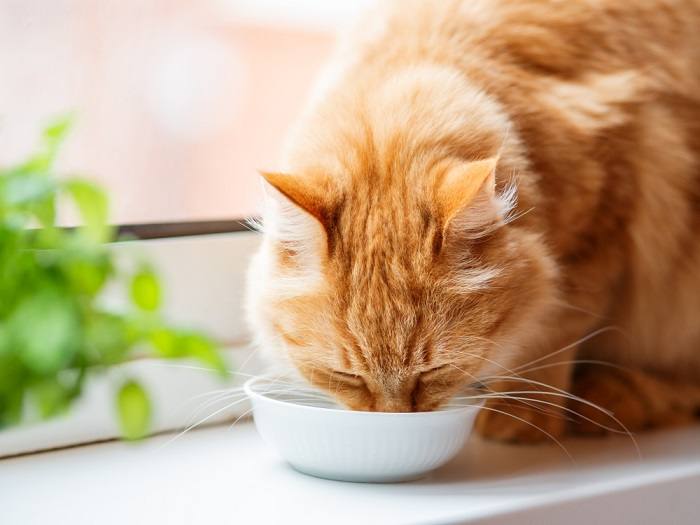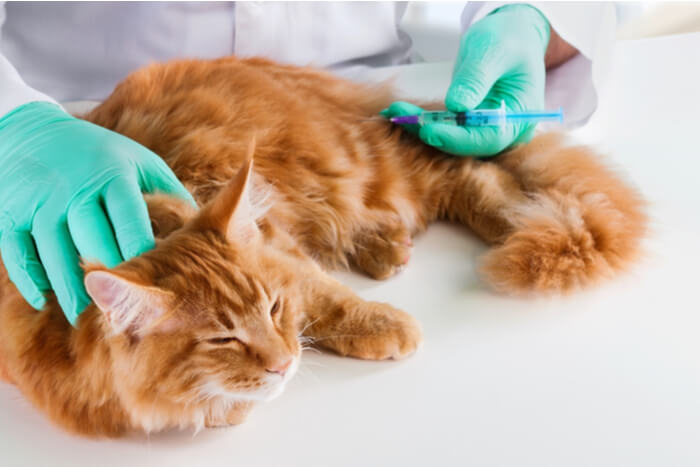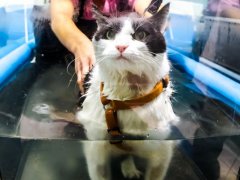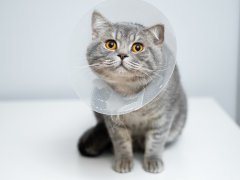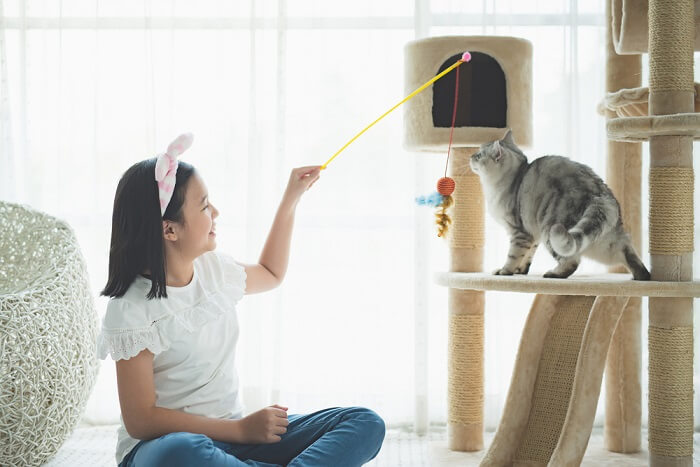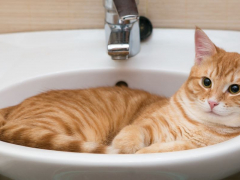Diabetes mellitus is a disease in cats that affects blood glucose levels due to a lack of insulin. It can be a challenging condition, but many cats go on to live long and happy lives by following the right diet and taking insulin. Some even go into full remission. Cat owners can find diabetes to be an overwhelming diagnosis. The time and financial responsibility that goes into caring for a diabetic pet is certainly a lot to think about.
When faced with diabetes in cats, it can be difficult to decide to implement a treatment plan or to make the heartbreaking decision to euthanize.
Let’s go through some of the basics of feline diabetes to help you make an informed and confident decision for your cat.
Diabetes And Euthanasia
Cats with health concerns can still be happy and live long lives if they get proper care.
Diabetic cats tend to be middle-aged or older cats, and males are more commonly affected than females. Risk factors include obesity and a sedentary lifestyle, both of which contribute to insulin resistance.
Also Read: 7 Best Cat Foods For Diabetic Cats
Diabetes in cats is not at all a death sentence. The long-term prognosis for diabetic cats varies with age, other health conditions and how easy it is to stabilize their insulin levels. Many cats live a long and healthy life with diabetes. Still, there is significant financial and time investment to consider.
Cats with any chronic health concerns need regular veterinary visits for careful monitoring. Diabetes often requires fairly intense input from a veterinarian in the initial few months, while deciding on the correct insulin dose, monitoring weight loss, and treating any complications.
Also Read: 7 Best Cat Foods For Diabetic Cats
The Cost And Commitment Of Treating Feline Diabetes
Owning a pet comes with great responsibilities. Sometimes pet ownership involves making some really difficult decisions. Euthanasia is a valid option for any cat who is suffering, has a poor quality of life, or cannot receive the care they need.
Pet owners often struggle with the overwhelming concept of treating diabetes in cats. Their beloved pet is often old, and the thought of giving injections to them can be frightening.
However, diabetes in cats is often very treatable. Diabetic cats can live a long time with a very good quality of life. Giving injections is very easy with some practice, and most cats tolerate this much better than they would by taking long-term oral medications. The needles for the injections are so tiny, they are barely noticeable when being used.
Some cases of feline diabetes can even be managed with diet alone, with no need for any drug therapy once insulin levels have stabilized.
There is a significant cost for feline diabetes treatment. Diabetic pets require regular health check-ups. However, some clinics offer at-home testing as a way to manage diabetes with a more ‘hands-off’ approach. Once the correct insulin dose has been found, the number of check-ups, and blood and urine tests will decrease. Still, the initial stabilization periods can be intense.
There is also the increased responsibility of owning a diabetic cat. They require a specific diet, need injections at certain times, and they also need to be closely monitored. This can make things like taking vacations a bit trickier.
Some cats are difficult to stabilize, which can be frustrating for pet owners and unpleasant for the cat. Some cats have periods of hypoglycemia (low blood sugar) or suffer from recurrent urine infections.
A dangerous sequela of untreated diabetes is diabetic ketoacidosis (DKA) which can present as an acute episode of vomiting, loss of appetite, depression, and collapse, which requires urgent and intensive treatment.
Also Read: Feline Hypoglycemia: Causes, Symptoms, & Treatment
Treatment Of Diabetes In Cats
There are two main aspects of diabetic management for cats: diet and insulin.
1. Diet
Diet plays a significant role in managing a cat’s diabetes.
The aims of dietary management in feline diabetes are two-fold: weight management and carabohydrate restriction.
Obesity interferes with the action of insulin. Reducing a cat’s weight back to a healthy range can have a huge effect on their diabetes. Weight loss is usually achieved through a combination of restricting calories and increasing exercise.
Carbohydrates are converted to glucose once digested. A low carbohydrate diet can have a significant response in diabetic management.
Suitable cat food will also often reduce insulin requirements, making the condition easier to manage, In some cases, this can even fully resolve feline diabetes. A prescription diet is usually the best option for diabetic cats, but there are low-carbohydrate commercial diets to follow as well.
Also Read: Cat Obesity Chart: Find Out if Your Cat is Obese
2. Insulin
Giving a cat regular injections of insulin may seem intimidating, but it is often fairly easy and becomes routine.
The majority of diabetic cats will need daily (or twice daily) insulin injections. Many cat owners find the thought of this very hard to deal with. However, giving injectable meds is often easier than successfully giving a pill to a cat. With some practice, this can become a very routine part of your daily cat care.
Oral medications are commonly used in humans to control diabetes. They are not, however, used in veterinary medicine. Most of these drugs are either toxic or ineffective in cats.
What More To Consider When Deciding When to Euthanize a Cat With Diabetes
In general, people who don’t mindfully consider the question of euthanasia in advance often wait too long, keeping their loved one longer than they should because they can’t bear to part with their friend.
While the best way to make end-of-life decisions for your cat is in partnership with a veterinarian you trust, there are several quality-of-life factors that you can use to help you decide when it is time to say goodbye:
- Loss of Appetite
- Uncontrolled and Severe Weight Loss
- Ability To Move Without Pain
- Inability To Control Elimination
- Uncontrolled Vomiting or Diarrhea
- Heart Failure
Also Read: How To Cope With Losing A Cat
Final Thoughts
Diabetes is a common, yet complicated disease in cats. The diagnosis, stabilization, and treatment phases vary a lot between individual cats. This can make big decisions about what to do about it difficult. However, the prognosis is generally good. If the financial responsibility and time commitments can be undertaken, treating a diabetic cat is very doable. In fact, it can be a very rewarding experience to give a cat with special health needs a better life under your care.
Frequently Asked Questions
What is the life expectancy of a cat with diabetes?
Cats who are treated for diabetes and remain stable have a good prognosis. Life expectancy is around three years, and as the disease is usually seen in older cats. This is similar to the life expectancy of an unaffected cat.
Is diabetes a death sentence for cats?
If diabetes in cats is successfully treated and well monitored, the prognosis is very good. Untreated diabetics will often make your cat unwell and can progress to diabetic ketoacidosis, which can be fatal.
Is it worth treating a cat with diabetes?
Treatment for diabetes in cats comes with a considerable financial cost and time commitment. Still, it can be very rewarding. Diabetic cats who respond well to therapy have an excellent prognosis for life expectancy and quality of life.
Is a cat with diabetes in pain?
Diabetes is not known to be painful. However, untreated diabetics will make your cat feel progressively sick. If the condition progresses to diabetic ketoacidosis, symptoms include vomiting and collapse. This can be fatal. Stable, treated diabetics have a good prognosis and quality of life.
